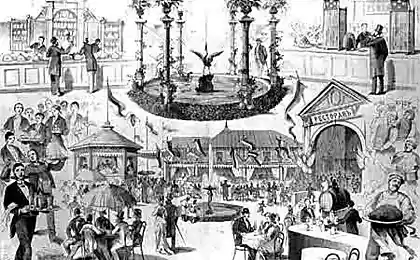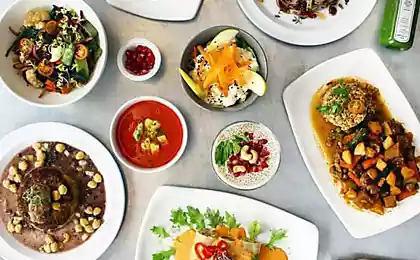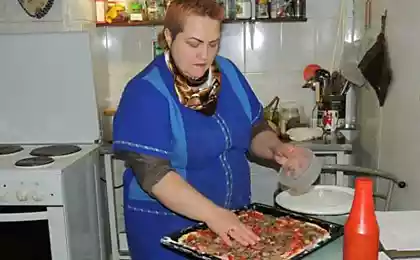238
Dandy from Paris rejected my signature dishes, only one he liked.
A Month of Hard Quarantine in Paris What an unfortunate combination for a person who came for a new impression! But if you're a born adventure hunter, they'll find you. Here, for example, was my friend from Kaunas, who was in the midst of a pandemic in the capital of France. She decided to experimentally determine whether, using the usual Russian recipes, it is possible to impress a native Frenchman with an exquisite taste. Because what we eat and what the French eat- two big differences.
As you know, in France, almost all men know how to cook well and surprise them quite difficult. And the chosen girl “example” turned out to be an aesthete and even dandy. Surprising him with something from our kitchen turned out to be an impossible task. But everything in order.
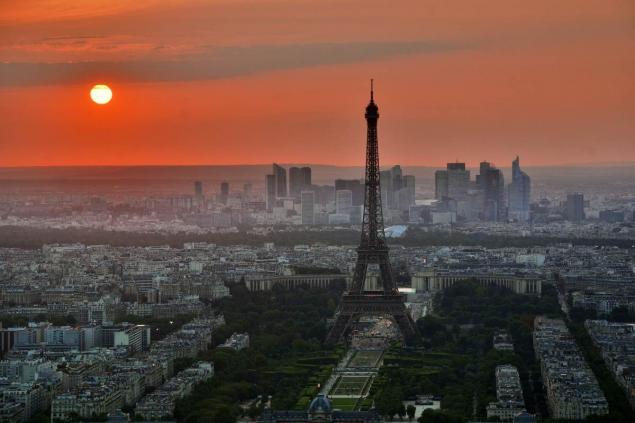
On the first date, my friend announced that “at first there was borscht.” The Frenchman asked what it was, and just in case with a grin asked: “Are you not going to stuff me with soup?” As it turns out, French-soup This is something so unseemly and unaesthetic that treating them is almost an insult. Soup at home is fed only toddlers and toothless old men.
After the first failure, the friend decided to get a little posh. Red caviar - Isn't it a celebration of taste? As it turns out, it's gone again! The brought delicacy caused rejection and banal solidarity with the “male” of the world. "It's probably delicious," he said, "but it's not that decent for men to eat these tadpoles."
The third attempt was juicers. They have to make a lasting impression! But there is a problem: to explain what it is. cottage cheeseIt wasn't easy at all. Poetic comparisons such as white ground or hard snow came to the rescue. And all because there is no cottage cheese in France. At least like ours.
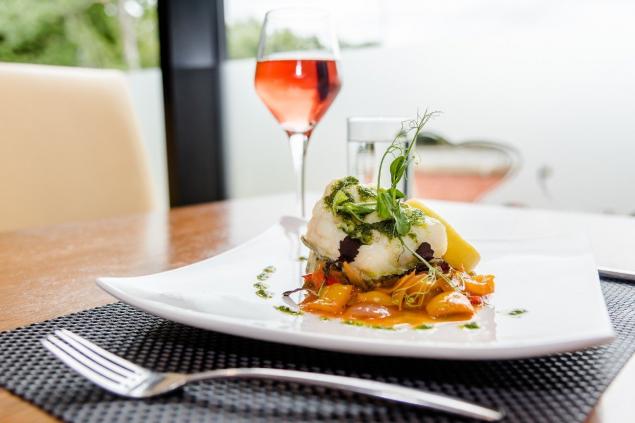
So I had to heat it up in a pot. fessel (It's like a little bit of corn). The resulting mass was passed through a sieve to separate the excess fluid. So it turned out to be a great homemade cottage cheese. When the juicers were ready, the Frenchman bit one and concluded: “Yes, this is very interesting...” and returned it to the plate. Total fiasco.
Our culinary experiments in Paris Next was a bay cake with onions and eggs on kefir. Now I have to tell you what it is. kefir. After all, there is no kefir in France, but there is Arabic fermented milk, and these products are very similar. Kefir acted on the stomach of a poor Frenchman very strangely: brought almost to a revolutionary state.
Then the girl made a cake out of cookies. The "expert" tried and replied that the cake was too heavy, but the dessert should be "light, fresh and airy like a cloud."
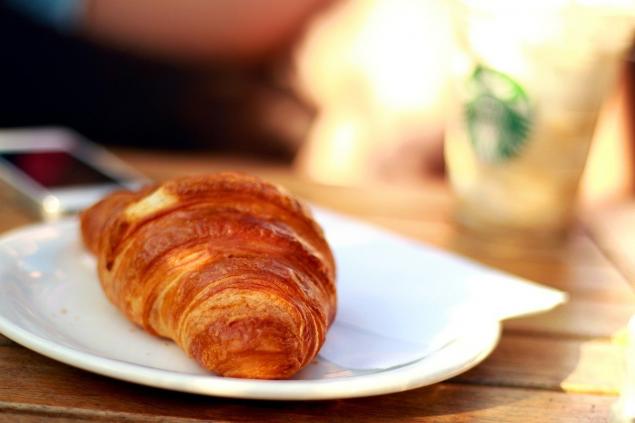
Well, okay. Light so light. So I decided to make a friend. gelatin. “Some kind of suspicious product this gelatin,” said about the next culinary delight of a friend of the taster. He refused to eat.
O-la-la-la. Owls! Last hope. And - bingo, pancakes unexpectedly fell to the Frenchman's taste. But he wanted to taste them not with sour cream, as we do, and not even with jam or honey, but ... with sea snails. An acquaintance admitted that the dish managed to cause her friend delight, but in this form it is unlikely to be considered the bringing of Russian culture to the world.
In France, food is more than food. It is, in fact, a symbol of life itself and its meaning, which for a true Frenchman lies in the real pleasure of living. And food is a link that connects and unites people. Therefore, it, as a kind of cult, is treated with trepidation and respect.
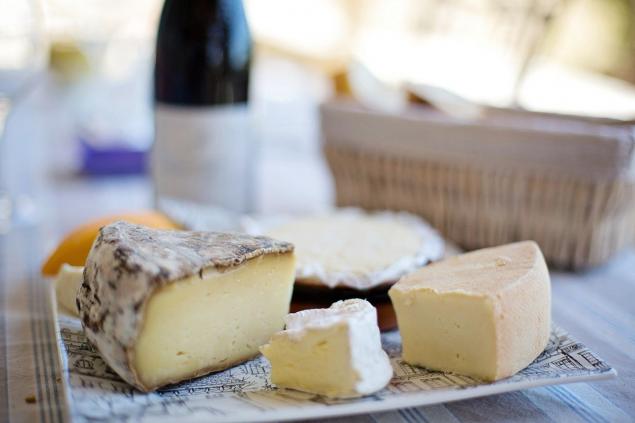
The Frenchman is unlikely to eat something questionable, especially expired or simply not evoking aesthetic delight. You won’t deny yourself goodies either. Even the greediest. In France, it is not customary to save on food, buy cheap products. The native French always go to the restaurant, even the poor students find money for it. Portions are usually small. This is explained by the fact that it is better to eat a little, but different delicious food than a lot of the same.
The French begin their meal three times And almost always at the same time. There is a rule: a sweet and light breakfast, a heavy and salty dinner. Baking is accepted to eat only in the morning. By noon, you won't find a croissant or a bun in the cafe.
Lunch in France They are not allowed under any circumstances. Most often it is a three-course classic, but there can be a plentiful warm salad or, if time is tight, a sandwich. And it will not be just a banal sandwich, but a real poem, translated into a baguette.
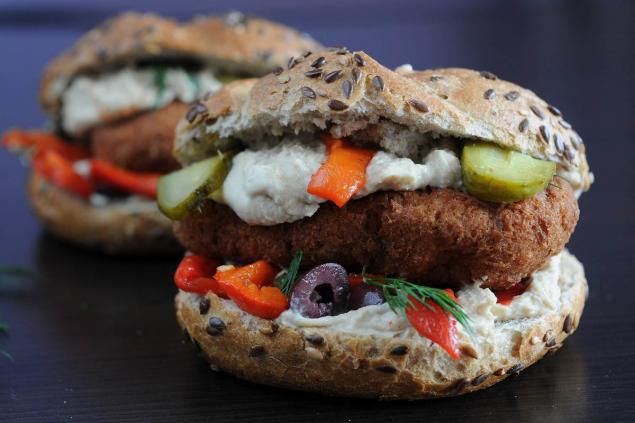
Dinner is sacred! Certainly not before eight, rather at nine or even ten o'clock in the evening. This meal consists of a parade of dishes, which completes a dessert. Naturally, all this is tasted under the generous accompaniment of wine. Strangely enough, after dinner it is customary to drink coffee. No one pays attention to the fact that the window is night, the pleasures should not stop.
By the way, dinner It can last for hours and often ends at midnight. This confirms the fact that not at all refusal to eat after six Becomes a guarantee of harmony. The key is to be born and feel French.
France leads not only in the tourism industry, but in the restaurant business.
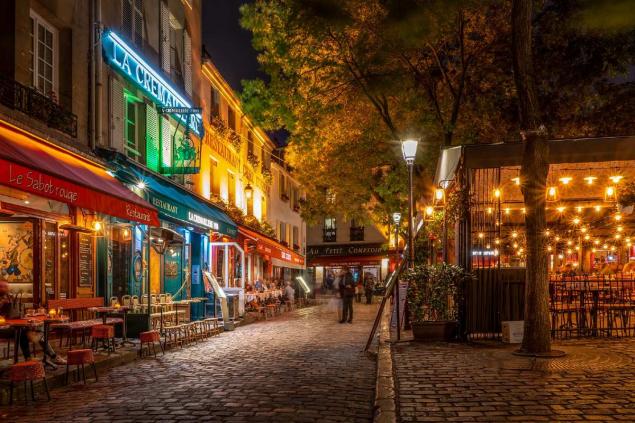
Good restaurants are always crowded. Due to the fact that the seats in them are almost worth their weight in gold, you will not be allowed to sit alone with someone at a table for four. And certainly not allowed to drink regular coffee at the table, which is covered with a tablecloth for lunch.
The chef in an elite gastronomic restaurant is an artist, and therefore a dinner with works of art is very expensive. There's a reverse phenomenon in France. broth. These are long-known cheap establishments, where earlier workers restored their strength during the day. Often that meat broth.
And in the evenings, in such institutions, impression-seekers from more privileged layers gathered. Gradually everything was mixed, as in any dish, in particular broth. Life there boiled sometimes until the morning. More recently, for a while, broths almost disappeared, but now the fashion for them is again revived. It is very tasty and inexpensive by French standards. And most importantly, the atmosphere there is always cheerful and friendly.
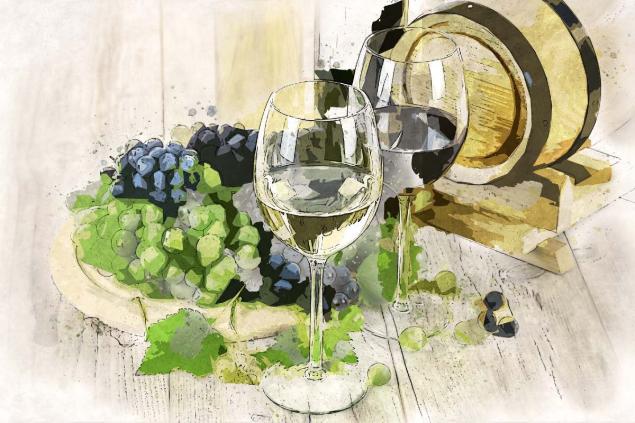
What do you think of this gastronomic view of France? After the stories of my friend and her story, I even more wanted to go to this country. I really want to see with my own eyes what the French eat, taste their famous pastries, enjoy truly delicious food. Are you with me? Write in the comments when to plan your trip?
As you know, in France, almost all men know how to cook well and surprise them quite difficult. And the chosen girl “example” turned out to be an aesthete and even dandy. Surprising him with something from our kitchen turned out to be an impossible task. But everything in order.

On the first date, my friend announced that “at first there was borscht.” The Frenchman asked what it was, and just in case with a grin asked: “Are you not going to stuff me with soup?” As it turns out, French-soup This is something so unseemly and unaesthetic that treating them is almost an insult. Soup at home is fed only toddlers and toothless old men.
After the first failure, the friend decided to get a little posh. Red caviar - Isn't it a celebration of taste? As it turns out, it's gone again! The brought delicacy caused rejection and banal solidarity with the “male” of the world. "It's probably delicious," he said, "but it's not that decent for men to eat these tadpoles."
The third attempt was juicers. They have to make a lasting impression! But there is a problem: to explain what it is. cottage cheeseIt wasn't easy at all. Poetic comparisons such as white ground or hard snow came to the rescue. And all because there is no cottage cheese in France. At least like ours.

So I had to heat it up in a pot. fessel (It's like a little bit of corn). The resulting mass was passed through a sieve to separate the excess fluid. So it turned out to be a great homemade cottage cheese. When the juicers were ready, the Frenchman bit one and concluded: “Yes, this is very interesting...” and returned it to the plate. Total fiasco.
Our culinary experiments in Paris Next was a bay cake with onions and eggs on kefir. Now I have to tell you what it is. kefir. After all, there is no kefir in France, but there is Arabic fermented milk, and these products are very similar. Kefir acted on the stomach of a poor Frenchman very strangely: brought almost to a revolutionary state.
Then the girl made a cake out of cookies. The "expert" tried and replied that the cake was too heavy, but the dessert should be "light, fresh and airy like a cloud."

Well, okay. Light so light. So I decided to make a friend. gelatin. “Some kind of suspicious product this gelatin,” said about the next culinary delight of a friend of the taster. He refused to eat.
O-la-la-la. Owls! Last hope. And - bingo, pancakes unexpectedly fell to the Frenchman's taste. But he wanted to taste them not with sour cream, as we do, and not even with jam or honey, but ... with sea snails. An acquaintance admitted that the dish managed to cause her friend delight, but in this form it is unlikely to be considered the bringing of Russian culture to the world.
In France, food is more than food. It is, in fact, a symbol of life itself and its meaning, which for a true Frenchman lies in the real pleasure of living. And food is a link that connects and unites people. Therefore, it, as a kind of cult, is treated with trepidation and respect.

The Frenchman is unlikely to eat something questionable, especially expired or simply not evoking aesthetic delight. You won’t deny yourself goodies either. Even the greediest. In France, it is not customary to save on food, buy cheap products. The native French always go to the restaurant, even the poor students find money for it. Portions are usually small. This is explained by the fact that it is better to eat a little, but different delicious food than a lot of the same.
The French begin their meal three times And almost always at the same time. There is a rule: a sweet and light breakfast, a heavy and salty dinner. Baking is accepted to eat only in the morning. By noon, you won't find a croissant or a bun in the cafe.
Lunch in France They are not allowed under any circumstances. Most often it is a three-course classic, but there can be a plentiful warm salad or, if time is tight, a sandwich. And it will not be just a banal sandwich, but a real poem, translated into a baguette.

Dinner is sacred! Certainly not before eight, rather at nine or even ten o'clock in the evening. This meal consists of a parade of dishes, which completes a dessert. Naturally, all this is tasted under the generous accompaniment of wine. Strangely enough, after dinner it is customary to drink coffee. No one pays attention to the fact that the window is night, the pleasures should not stop.
By the way, dinner It can last for hours and often ends at midnight. This confirms the fact that not at all refusal to eat after six Becomes a guarantee of harmony. The key is to be born and feel French.
France leads not only in the tourism industry, but in the restaurant business.

Good restaurants are always crowded. Due to the fact that the seats in them are almost worth their weight in gold, you will not be allowed to sit alone with someone at a table for four. And certainly not allowed to drink regular coffee at the table, which is covered with a tablecloth for lunch.
The chef in an elite gastronomic restaurant is an artist, and therefore a dinner with works of art is very expensive. There's a reverse phenomenon in France. broth. These are long-known cheap establishments, where earlier workers restored their strength during the day. Often that meat broth.
And in the evenings, in such institutions, impression-seekers from more privileged layers gathered. Gradually everything was mixed, as in any dish, in particular broth. Life there boiled sometimes until the morning. More recently, for a while, broths almost disappeared, but now the fashion for them is again revived. It is very tasty and inexpensive by French standards. And most importantly, the atmosphere there is always cheerful and friendly.

What do you think of this gastronomic view of France? After the stories of my friend and her story, I even more wanted to go to this country. I really want to see with my own eyes what the French eat, taste their famous pastries, enjoy truly delicious food. Are you with me? Write in the comments when to plan your trip?
At a village wedding, I got a cake recipe that will taste better than charlotte.
How to fix the dowel in the wall from which the plaster falls






